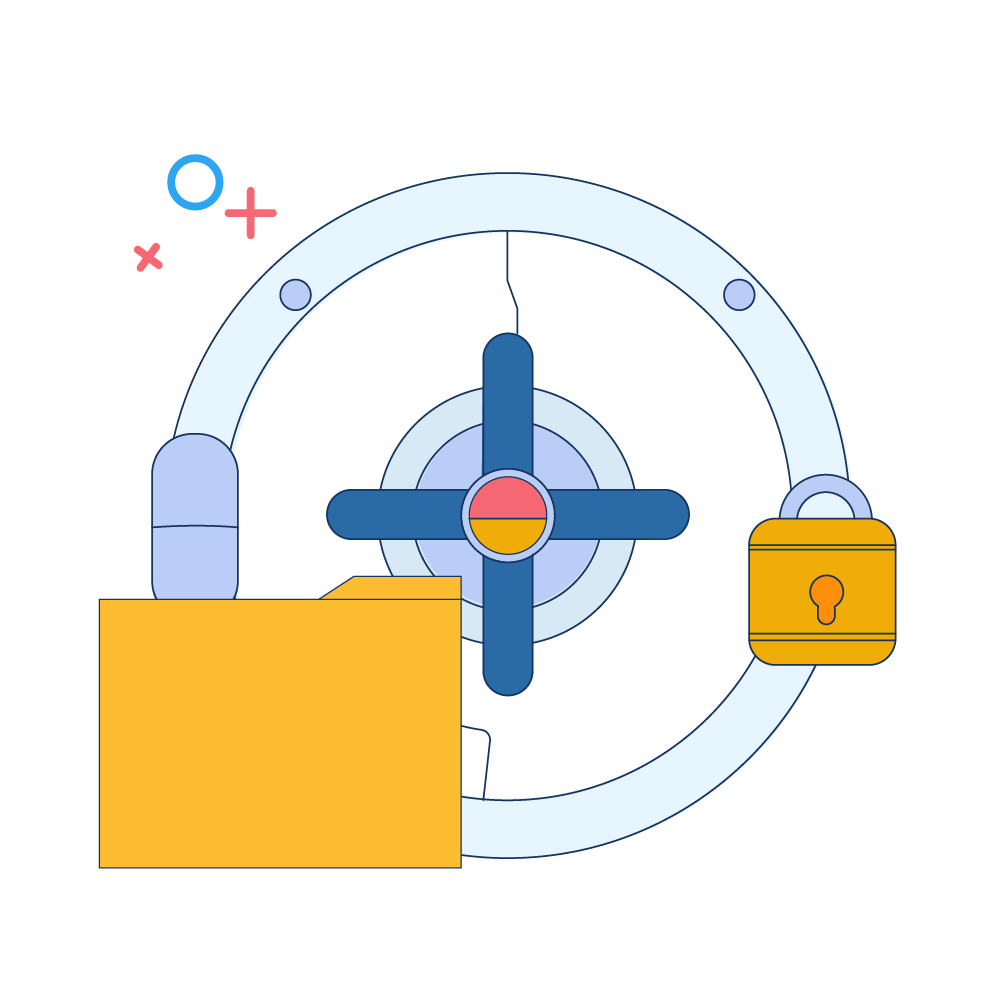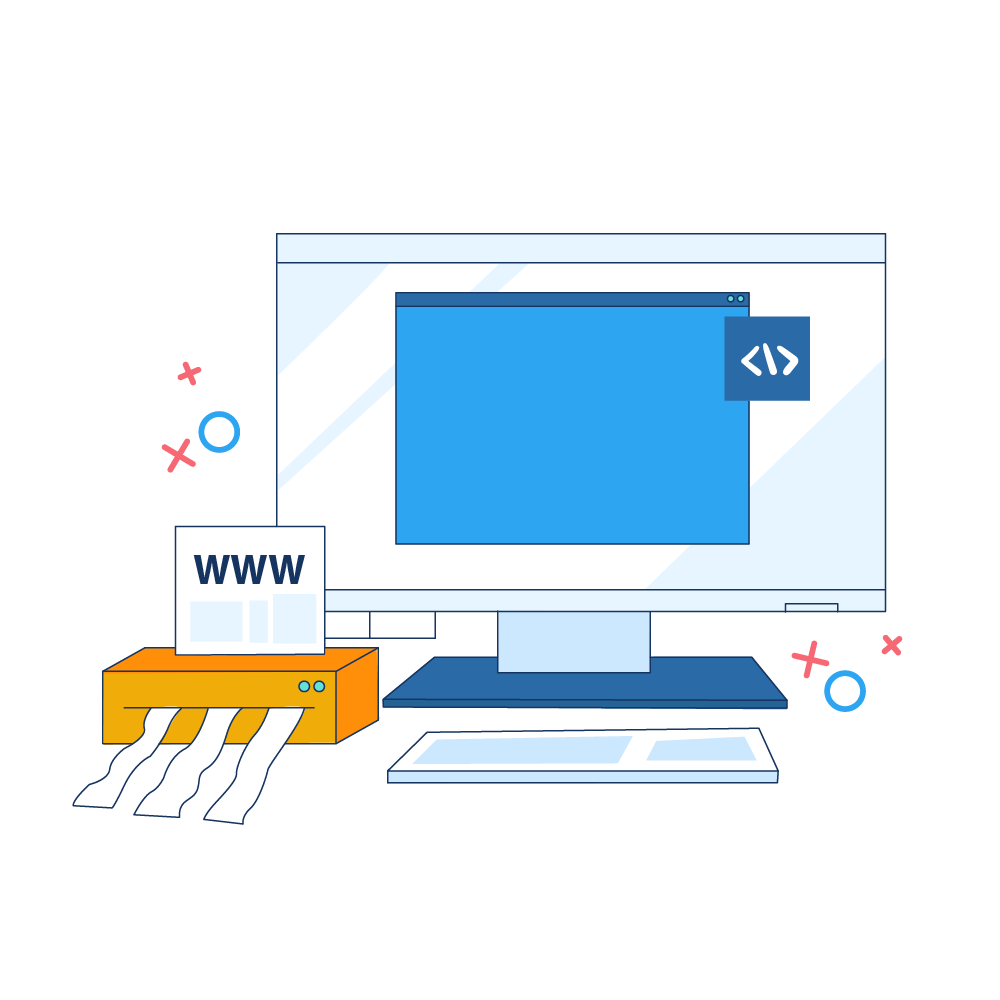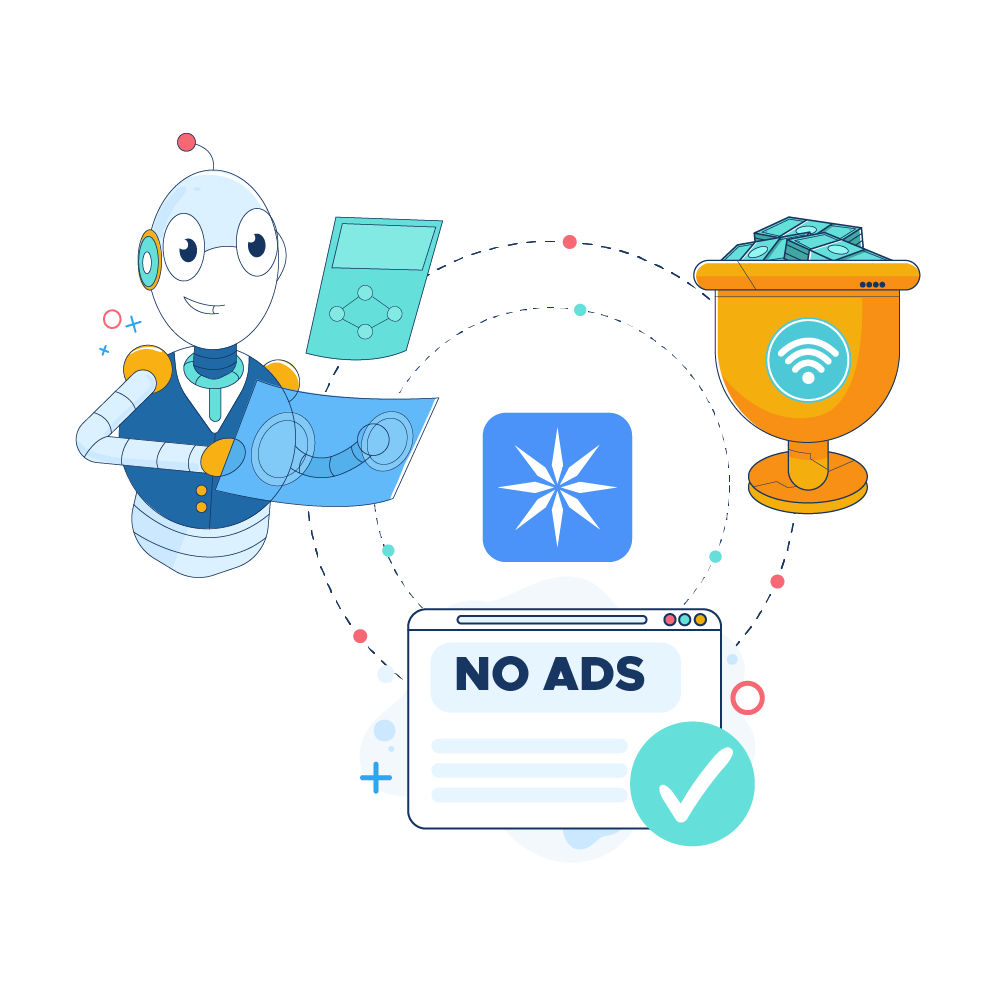ROTATING RESIDENTIAL PROXIES
Special Rotating Proxies
Rotating residential proxies with worldwide geo targeting optimized for high success rates.
Basic Rotating Proxies
Rotating residential proxies with random geo location.
Fast Rotating Proxies
Rotating residential proxies with worldwide geo targeting optimized for scraping and data gathering.
On Demand Proxies
Residential proxies with on demand rotation, geo targeting using user and password authentification.
Web Scraping Without Getting Blocked: Proxy Fingerprints

Companies from all over the world compete to promote products and services in the online environment in order to benefit from the growing number of customers they can reach thanks to the explosive growth of Internet networks and mobile devices.
And yet, the virtual environment can bring even more benefits to companies that want to be successful as the same enterprises can improve their online presence by taking advantage of the publicly available information from various web sources.
However, as the Internet is still a dangerous place where bad actors employ malicious software to withdraw private information, an increasing number of websites have started to implement various anti-scraping mechanisms that analyze your system fingerprints in order to keep unwanted visitors away.
And since it’s always difficult to make the difference between users who are involved in data extraction jobs that target public information and hackers looking to withdraw private data, some websites’ protection mechanisms might block users’ scraping tools from accessing the targeted content.
Since we don’t want to be kept away from the data we need, it is important for us to have an idea of the main fingerprints that reveal our online presence and might position our online browsing activities in a negative spotlight.
Though our devices give away a great number of fingerprints that offer private details about us, probably some of the most important ones are related to our IP address, our browser, and finally our online behavior. Let’s check them out.
3 Fingerprints That Might Block Your Scraping Jobs
1. IP fingerprinting
As a company involved in the proxy industry, our customers are usually large and small businesses that want to extract information from the Internet while keeping their real IP addresses hidden for privacy purposes.
At the same time, the necessity to go online with a different IP address resides in the need to access geo-restricted locations that are available to a limited number of people.
For the above reasons, our company is familiar with IP fingerprinting as a popular detection method that is used sometimes to impose limitations and restrictions on our customers.
Most of the time, online restrictions based on the IP address are imposed when a website wants to allow access to a limited number of people from a particular location.
IP fingerprinting comes into action when websites want to limit user activities and enforce the rules, such as allowing the creation of a single account or buying a number of products from an e-commerce site.
From a proxy provider’s point of view, the customers are usually affected in their scraping attempts when they try to access content from a geo-restricted site and when the scraping tools in use deliver a great number of requests in a limited time frame from the same IP address.
When these restrictions are in place, websites can easily block users who engage in data scraping jobs without using proxies.
To avoid the IP fingerprint that permits sites to block users who engage in data extraction jobs, our company designed a residential proxy network that allows customers easy access to sites of interest keeping their genuine IP addresses hidden from outside parties.
2. Browser fingerprinting
Though IP fingerprinting is one of the most popular methods to discover details about users, it is not the only way to find out relevant information about people who browse online or visit your website.
When we go online, the websites we visit are equally looking to discover as many details as possible about our identities in order to use the collected information for ads-related purposes by checking the online traces left behind by our operating systems and browsers.
For this reason, most of us experience the effects of browser fingerprinting when looking for some specific information and then receiving ads that are related to those products and services all over the Internet. Thus, advertising companies benefit from the collected data to deliver better ads that align with our interests while increasing their sales revenues.
However, browser fingerprinting is not only about ads that invade our privacy informing us that some parts of our identities have been leaked to private companies.
The same browser fingerprinting works to save us money when our online bank accounts are targeted by online criminals from unidentified browsers (in unusual locations) raising some red flags in the process and activating the online protection mechanisms.
Though browser fingerprinting may prove sometimes beneficial for us, it nevertheless represents a breach of our privacy.
The websites that we visit can obtain easy access to numerous pieces of information from our systems, such as system fonts, browser, operating system details, screen resolution, installed plugins, time zone, and other data.
Though browser fingerprinting in itself is not enough to obtain full access to someone’s identity, if we add all this data alongside the IP fingerprint that offers more information about a user’s residential address (country, city, street), we are very close to obtaining an enhanced perspective on someone’s identity.
3. User behavior fingerprinting
We have already established that users involved in data extraction projects encounter numerous obstacles in the online environment, especially when dealing with websites that use IP and browser fingerprinting techniques to detect and keep unwanted visitors away.
Further on, sites that mean business and want to increase the protection level are analyzing the user behavior fingerprinting.
When we talk about user behavior we are referring to the actual actions taken during an online browsing session. Websites are looking to analyze user behavior as they are interested in keeping bots, crawlers, and malware away.
For this reason, sites that analyze the user behavior want to see human-like actions which suggest that a real person is visiting the site and not an automatic software program that targets some data.
Though it may appear as a negative factor for companies involved in proxy-related activities, the user behavior fingerprinting emerged as an attempt to control the traffic and detect in advance malicious software that is trying to break a website’s defenses looking for private information.
Still, for companies dealing with data scraping jobs, user behavior fingerprinting may not be a great piece of news as the software tools used for data extraction might be restricted at times.
To overcome user behavior fingerprinting, companies that offer proxy-related products and services worked to adjust their solutions to mimic human behavior and limit the number of requests that are sent in a certain period of time.
Web scraping without getting blocked
Fingerprinting is an essential part of our online experience, even though we may not be aware of it. Since most websites are looking to increase their overall security measures, the users are requested more often than before to prove their identities and reveal their intentions.
Though it is true that fingerprinting takes place in an automated manner and users are not aware of it, this data collection practice is constantly employed by some websites to record our IP details, browser preferences, and even our online behavior.
All these details may not threaten our personal online experiences, especially when most people are already accustomed to cookies and trackers that record our habits and ad preferences, but for companies involved in data scraping activities, things are completely different.
Since fingerprinting brings out multiple details of our systems and devices, users engaged in data scraping jobs are easily detected and blocked from accessing some websites, even though they may look to extract public information.
So, an obvious question emerges: How can a company continue its data extraction activities without getting restricted from accessing the online sites of interest?
If we are to take the example of our company, we worked hard to develop a residential proxy network that can shield users’ browsing preferences and private details from websites employing fingerprinting tools.
With our proxies at work, users can continue to scrape for online data without any issues as our experts are fully aware of the fingerprinting methods that may keep you away from extracting the necessary content.
Are you interested about web scraping without getting blocked? Check out also the most popular questions about proxy.
This category's latest stories

3 Major Web Scraping Cases for Companies
Do you want to discover the major web scraping cases for companies that use proxies? Check our article and find out how proxies can support your business!

How to obtain online data without getting blocked
Do you need to obtain online data without getting blocked? Follow these steps to protect your web scraping activities and enhance your business perspectives.

What Is Web Scraping And How It Can Support Your Business
Are you looking to obtain the right business data via web scraping jobs? Find out how web scraping can support your company’s interests.
Featured Articles

News
02.12.2024
Introducing Ice Payments on Shifter
Discover seamless crypto transactions with Ice payments on Shifter. Streamline your proxy service purchases and unlock new opportunities with Ice integration.

Residential Proxies
04.04.2023
8 Myths About Proxies. What You Should Know?
Are you aware of all the myths and stories surrounding proxies? Check our article and test your knowledge of proxies’ true limits in the online environment.

News
03.21.2023
Looking for an Alternative to Pi Network? Why ice Network is the Perfect Solution
Find more about the tremendous advantages of the ice Network and mining ice coins, as many are starting to take notice, ultimately choosing to leave Pi Network to have access to better, more rewarding opportunities.
Shifter's legacy
Shifter was founded in 2012, as one of the first residential proxy providers, since then it has become one of the leading proxy networks in the world and it's used by more than 25.000 clients including Fortune 500 Companies. Users can connect from anywhere to access local data without any restriction, while preserving a high degree of privacy and security.